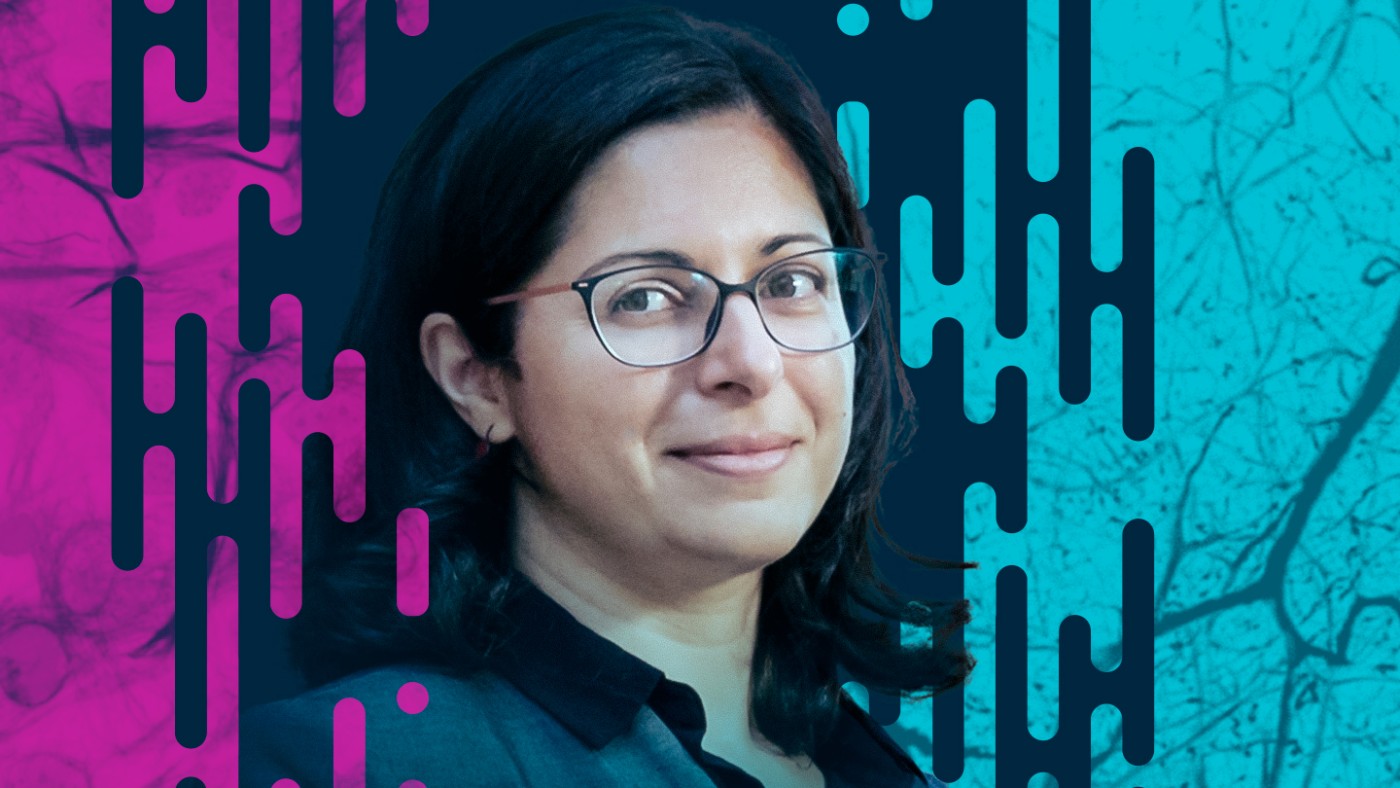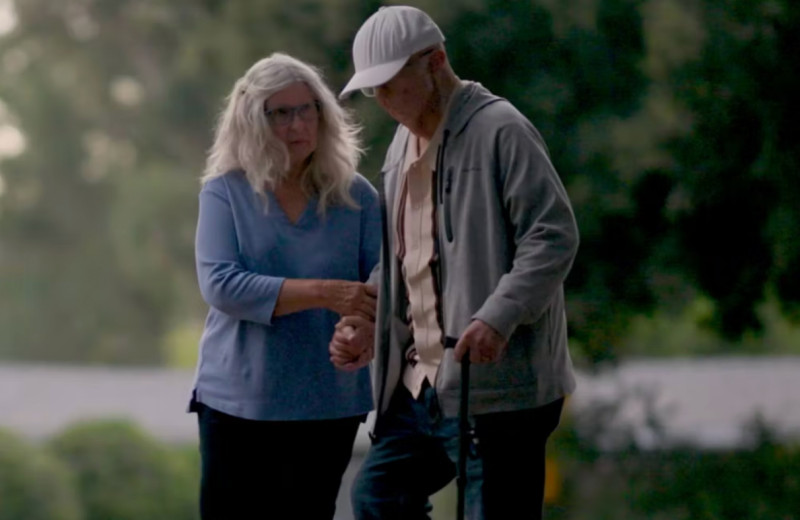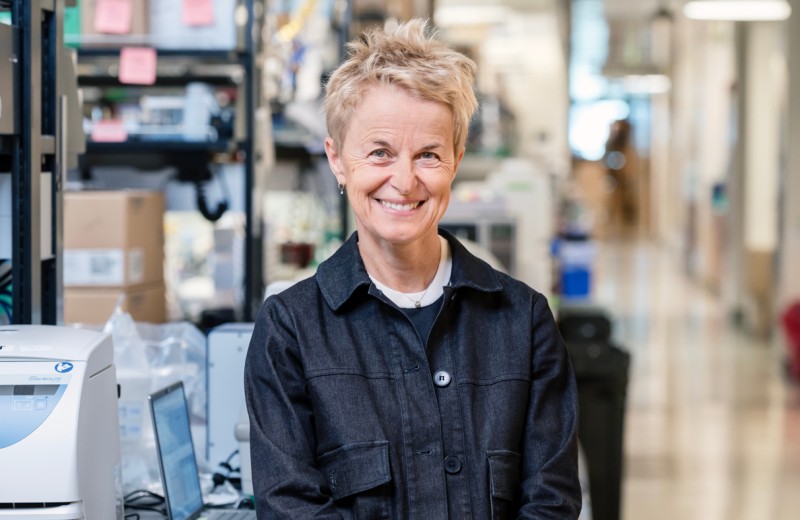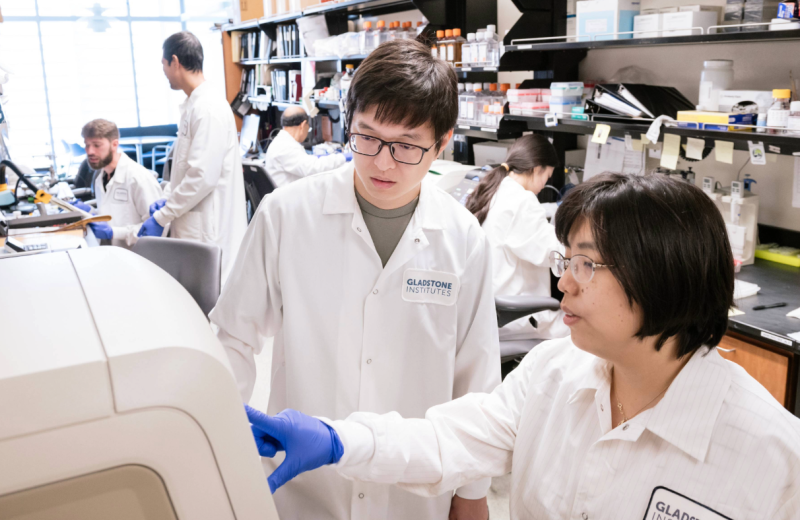Gladstone NOW: The Campaign Join Us on the Journey✕

Jeanne Paz is chairing the first Vilcek Science Symposium, which will provide a platform for sharing research, launching collaborations, and mentoring young immigrant scientists.
They come from around the world—born in Taiwan, India, Lebanon, Israel, Romania, and Russia, among other places—but they all call the United States home. The scientists presenting at the first Vilcek Science Symposium, taking place October 19–20 at Gladstone Institutes, have something in common other than their top-notch, award-winning research: they’re all immigrants.
Organized in partnership with Gladstone and the Vilcek Foundation, the upcoming symposium called “Science Crossing Borders: Celebrating the Contributions of Foreign-Born Researchers in the United States” aims to recognize outstanding science by researchers born outside the US. It also will provide a platform for the researchers to share their personal stories, network with one another, and raise awareness of the impact of immigration to inclusive and high-quality science.
“Even though we come from diverse backgrounds and study very different topics, immigrant scientists share some common experiences,” says Jeanne Paz, PhD, conference chair and associate investigator at Gladstone. “We thought it would be nice to meet, create opportunities for collaboration, and brainstorm how we can support trainees who are coming from other countries.”
“This symposium represents the first time that Vilcek prizewinners in biomedical science have a specific opportunity to connect in an academic context,” says Jan T. Vilcek, MD, PhD, cofounder, CEO, and chairman of the Vilcek Foundation, and professor emeritus of microbiology at New York University. “We hope that the 2-day program will help these leaders learn more about one another’s work and create space for potential collaborations moving forward.”
A Chance to Connect
The Vilcek Foundation was established in 2000 by Jan and Marica Vilcek, immigrants from former Czechoslovakia. Their mission is to both raise awareness of immigrant contributions in the US and foster an appreciation for the arts and sciences. To date, the foundation has awarded more than $6.4 million in prizes to foreign-born individuals who have made lasting contributions to American society in areas including science, music, architecture, and literature.
“There’s often this idea in the scientific community that to be successful, you have to come from a very famous lab and follow a particular path, and it’s important for young scientists to see that doesn’t have to be true.”
In 2019, Paz won a Vilcek Prize for Creative Promise in Biomedical Science for her research on epilepsy. At the annual Vilcek Awards Gala, she and fellow winner and scientist Angelika Amon, PhD, struck up a conversation about some of the unique challenges that immigrant scientists face. They started brainstorming ways to strengthen the community of Vilcek award-winning scientists and came up with the idea for a symposium.
Plans for the symposium were put on hold due to the COVID-19 pandemic and the loss of Amon to cancer in 2020.
“Angelica was a brilliant scientist and a wonderful colleague, and we were all saddened by her loss,” says Paz. “I know she would be proud to see that we’re pursuing the idea of bringing together immigrant scientists.”
Now, the symposium is moving ahead again, with a full slate of scientific talks and mentoring sessions scheduled for October.
“We are thrilled to host this exciting symposium,” says Lennart Mucke, MD, director of the Gladstone Institute of Neurological Disease. “An immigrant myself, I deeply appreciate the efforts of the Vilcek Foundation and the pioneering contributions of these outstanding speakers. Their paths beautifully illustrate that science truly is universal and boundless.”
Inspiring Change
The scientists presenting at the upcoming symposium work in diverse fields—from physics to biomedicine—and Paz hopes that getting them all in one room will create new collaboration and networking opportunities. But she also hopes that students will tune in for the talks and be inspired by the stories of the immigrants.
“There’s often this idea in the scientific community that to be successful, you have to come from a very famous lab and follow a particular path, and it’s important for young scientists to see that doesn’t have to be true,” says Paz. “You can come from a very difficult background and move far away from your support network and succeed because you pursued a path that you were passionate about.”
Paz herself was born in Georgia and moved to the US for her postgraduate research.
Like her, many prizewinners credit not only their backgrounds, but the purposeful diversity of their labs with helping them think more expansively about their research subjects. With those messages in mind, the symposium organizers have arranged roundtables, mentoring opportunities, and a panel discussion with a handful of attendees about how being an immigrant has shaped their science.
“There is no singular immigrant story or experience, and while our prizes recognize immigrant scientists, each of our prizewinners has a unique experience, focus, and insight that has contributed to their success,” says Rick Kinsel, president of the Vilcek Foundation. “We hope to make this diversity apparent, and to bolster individuals’ understanding of the ways that immigration has a positive impact on our scientific communities, and on society more broadly.”
While the Vilcek Foundation does not approach their work from a political stance, they also hope—through their awards, advocacy, and the upcoming symposium—to raise awareness of the need for visa programs and broader immigration reforms that will support admitting foreign-born scientists to pursue education and work in the US.
To register or view the 2-day program, visit the symposium’s webpage.
One Person’s Final Gift to Science Gets Us Closer to an HIV Cure
One Person’s Final Gift to Science Gets Us Closer to an HIV Cure
A new documentary follows Jim Dunn’s end-of-life decision to donate his tissues to HIV research.
Institutional News HIV/AIDS Infectious Disease Roan LabBeyond Viruses: Expanding the Fight Against Infectious Diseases
Beyond Viruses: Expanding the Fight Against Infectious Diseases
The newly renamed Gladstone Infectious Disease Institute broadens its mission to address global health threats ranging from antibiotic resistance to infections that cause chronic diseases.
Institutional News News Release Cancer COVID-19 Hepatitis C HIV/AIDS Zika Virus Infectious DiseaseFueling Discovery at the Frontiers of Neuroscience: The NOMIS-Gladstone Fellowship Program
Fueling Discovery at the Frontiers of Neuroscience: The NOMIS-Gladstone Fellowship Program
The NOMIS-Gladstone Fellowship Program empowers early-career scientists to push the boundaries of neuroscience and unlock the brain’s deepest mysteries.
Institutional News Neurological Disease Mucke Lab NOMIS



